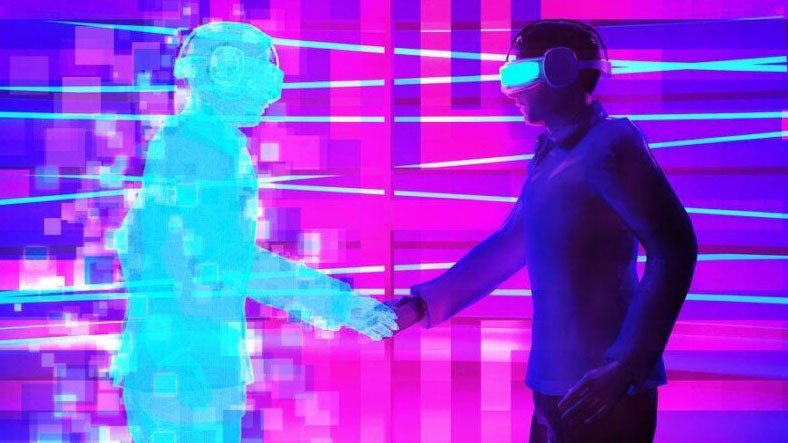The ‘‘metaverse”, which has been frequently raised in recent days, has caused quite a big echo both in Turkey and in the world. It is often used to describe a virtual universe accessed through virtual reality technology. The Metaverse is a virtual world where users, represented by an avatar, can shop, socialize, participate in leisure activities and learn. There are important marketing opportunities in this virtual world and it seems that many brands are already taking advantage of these opportunities. In the Metaverse, avatars can transcend reality and have also been used to explain how we can connect digitally in the years to come.
The Metaverse usually refers to interconnected, virtual communities or worlds that avatars of individuals can connect to. It is possible to access this virtual reality universe using VR headsets, augmented reality, smartwatches, and smart glasses. Ready Player One, a dystopian science fiction novel written by Ernest Cline in 2011, depicts a metaverse universe called OASIS, accessed via virtual reality headset and wired gloves to escape a world torn apart by an energy crisis.
During the COVID-19 pandemic, virtual communication has become increasingly important. In this context, it is expected that Metaverse will bring together a large number of users and provide opportunities for users to do their daily activities in a virtual environment dec But the lack of any laws regulating the limits of metaverse technology can make users more vulnerable. Some of the challenges for the Metaverse will be to remove VR headsets from playgrounds and minimize the material dimensions of virtual reality equipment.
On the other hand, the changes that will occur with the metaverse also bring social difficulties. The transition to online life undeniably also carries a risk of identity theft and fraud. Although individuals are used to many activities such as shopping, entertainment, socializing, and working in digital environments, we are not exactly used to virtual reality from a technological or social point of view. This situation may cause the real world to experience a blow.
By its very nature, the Metaverse transforms into personal, biometric, financial, and even emotional data, leading to concerns about security, privacy, and intellectual property. Likewise, when avatars are used as a form of identity, personal data becomes open to being copied, stolen, deleted, or manipulated. Although biometric identification is a solution, it should be remembered that identity fraud is always a big risk to be faced and the necessary measures should be started to be worked on already.



